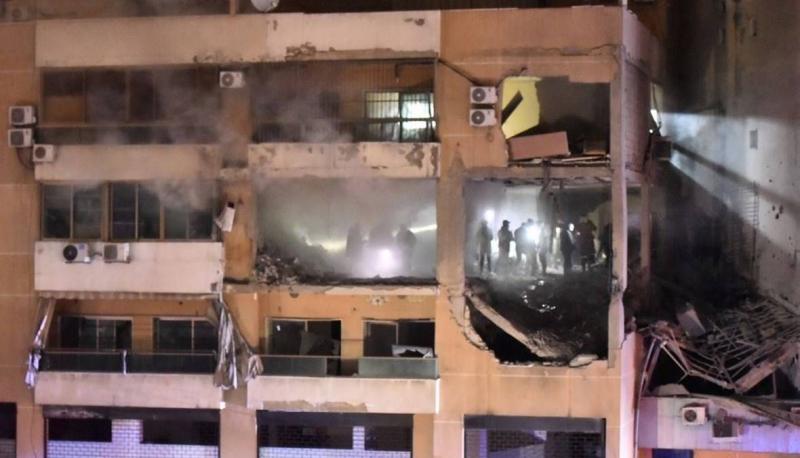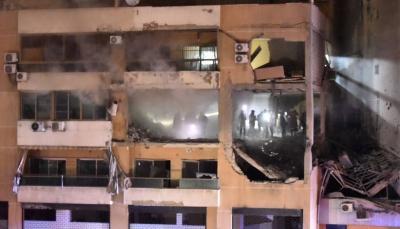If we recall Nahum Goldman’s saying, “If it weren’t for President Woodrow Wilson, there would be no Balfour Declaration,” and if we remember how Harry Truman sent American planes to strike the Egyptian army in the Negev during the 1948 war, we can understand why the Englishman David Hearst noted, as the writer Nabih Barghi observed, that our wars go in vain because we are fighting against a shadow. In his old opinion, “Israel” will remain not only the American hammer but also the American fortress in the Middle East as long as the United States is present there. He added, “I do not imagine that American interests will remain there forever.” With seven decades having passed while we have been trapped in a cycle of blood, we may have to wait for more decades, and perhaps the last decades, for America to exit the region, where the Pentagon has established the largest military command outside American soil. Barghi personally asked Hearst, as we were writing together for one of the newspapers, “If we put our rifles aside – and you know what happened to Yasser Arafat when he carried the olive branch – wouldn’t the heirs of Theodor Herzl, or the heirs of Joshua bin Nun, be able to achieve the ‘divine promise’ from the Nile to the Euphrates?” He replied laughing, “...but America stretches from the ocean to the Gulf, which is your national homeland, right?”
In his view, and in the view of many Westerners who support the Arabs, though they are few in number, “You are victims of yourselves, just as you are victims of regional states that believe, while observing how weak you are, that they can replace the United States in what John Foster Dulles called ‘filling the vacuum’ when he launched the ‘Eisenhower Doctrine’ in 1957, without realizing that they are working within the framework of the American strategy, which aims to ignite futile conflicts that continue to drain even your skeletal structures.”
Later, Hearst talked about the “Turkish experience” in trying to revive the Ottoman (Seljuk) Empire through the tactical use of the Muslim Brotherhood, without any ideological correlation to either Hassan al-Banna or Sayyid Qutb. Israeli historian Avi Shlaim (a professor at Oxford University) made a comment that punctured the “Israeli scene,” and indeed the “Jewish scene,” when he said that “Americans will continue to support those mad policies until the last Jew on the surface of the earth.” He asked in astonishment, “How can a demographically and geographically limited state think and act imperially?” He sees that the philosophy of power, with its horrific bloody dimensions, can ultimately only destroy those who adopt it, recalling what happened to Hulagu, Bismarck, Napoleon, and Hitler, not to mention the great imperial experiments.
Shlaim noted that the “Jewish dream” began to decline since being sunk in the Lebanese sands in 2000 or 2006, revealing “a new and bitter reality for Tel Aviv” through establishing a balance of terror, which means fundamental changes in the language of the field. Even after the Al-Aqsa flood operation and its aftermath, the Americans recognized the structural fragility of Israel as a state. The hammer is no longer there, nor is the fortress. What future is there for the Hebrew state in America?? The author of “The Iron Wall: Israel and the Arab World” urged the political and military leadership in “Israel” to reshape their theological and military vision regarding the concept of the state and its relationship with other states, to sense the horrors of linking the survival of “Israel” to the survival of America in the region.
There is no logic that shakes those Spartan heads, and it seems that fighting against the Palestinians is viewed as a fight against “human rocks.” The daily threats against the resistance in Gaza and Lebanon further emphasize this point. Hence, the warnings that a pack of wolves in “Tel Aviv,” which understands what any military operation against Lebanon would lead to, see the alternative in a major intelligence operation for internal explosion. How? Sensitive assassinations leading to bloody clashes, causing the resistance to find itself embroiled in this game. There is no doubt that the Lebanese security agencies have proven effective in performance, comparable to that of the major international agencies. However, when Lebanon consists of scattered political and sectarian fragments, what eyes or ears can observe the scene or what lies beyond it?




